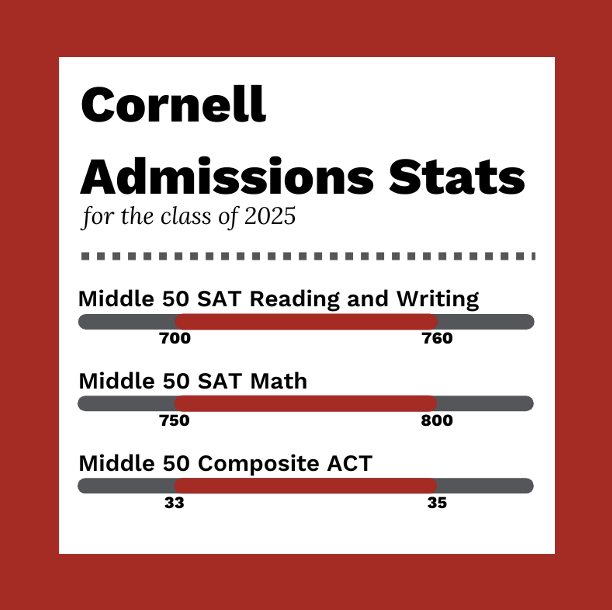All schools are at least a little secretive about legacy admissions. They don’t give exact facts or figures, but you might get some hints at information. Cornell is more secretive than most. They publish almost nothing about legacy admissions or their policies around it. This is why we get a little cautious when alumni parents start saying things like “oh course my kid will get into Cornell, they are a legacy!” We understand why parents think this, but especially at a super secretive school like Cornell, it isn’t backed up by data. So we wanted to break down everything Cornell has said about admissions and what in, our professional opinion, is your student’s best shot at getting in.
How Many Legacies get in?
Short answer, it is impossible to know. Cornell simply doesn’t release this data. But we would infer the majority don’t get in. How do we know this? Well, the highest legacy acceptance we have seen is around 30%, and this was a couple of years ago at Harvard and Princeton. However, since then, we have seen rates fall across the Ivies. But even with the highest rate we have seen, most legacies don’t get in. And more importantly, the ones that do are usually great candidates.
There is this stereotype that legacies are lazy and rich. While it is true that a lot of legacies come from privileged backgrounds, the lazy part just isn’t false. Legacies come from families that hold education as a primary value. This often leads to competitive, qualified, and type-A legacy applicants. Since all legacies don’t get in, these students are your student’s direct competition.
So what does your legacy need to do to be competitive?
Consider applying early
Cornell isn’t releasing numbers for the Class of 2026 until the end of the cycle. However, we do have the data for the Class of 2025. Their early acceptance rate was 21.4% and their regular decision rate was 6.7%. Cornell usually puts more weight on legacy during ED than RD or EA. When we spoke with admissions, they said that ED is the only time they really look at legacy status. They want their legacies to be serious about going to Cornell and applying ED shows them that.
Get Good Grades (and maybe scores…)
For the Class of 2025, 84% of admitted students ranked in the top tenth of their high schools, and 96.4% ranked in the top quarter. Cornell is looking for students who have great grades. Legacies often have great or perfect grades.
Your student can have a perfect application but if the grades aren’t there, they don’t have a shot of getting in. It’s an upsetting truth, but an important one. Cornell is competitive and they want to see applicants that are competitive when it comes to their education. They want to see great grades and they want to see those grades come from challenging classes.
Many college applicants can also show off their academic prowess by acing their standardized tests, however, that is a little more complicated at Cornell. Right now, Cornell (like many schools) is test optional due to the Covid-19 pandemic. More uniquely, some of Cornell's colleges adopted test-blind policies. That means if your student is applying to Cornell’s College of Agriculture and Life Sciences, College of Architecture, Art, and Planning, Johnson College of Business - Dyson School of Applied Economics and Management, or Johnson College of Business - Peter and Stephanie Nolan School of Hotel Administration, they will not be taking your student’s test scores into account.
However, if your student is applying to one of their other undergrad schools, they should be pushing themselves to excel at the SAT or ACT. For Cornell’s schools that do look at scores, the middle 50% of accepted applicants scored between 700 and 760 on ERW and 750 and 800 on Math for the SAT. Similarly, the middle 50% of those who took the ACT were between 33 and 35. These are nearly perfect or perfect scores. Legacy students usually work with top tutors to ensure their scores are as high as they can be. So if your student is planning on submitting scores, make sure they shine.
Everything else
Having great grades is only the first step. So many applicants have great grades and scores that it is the absolute bare minimum. You need to make sure your student sparkles everywhere else. Your student needs to have great essays and interesting extracurriculars to really stand out. Most legacies work with a college counselor (that’s us). Many legacy students start working with us as late as their junior spring as application season starts to ramp up, however, most start earlier. When students start with us early, we can advise them on what they should be doing instead of just packaging what they have already done. No matter when students start with us, we make sure their applications and resumes are as strong as they can be. This is especially important for legacies.
Legacies often come from highly privileged backgrounds. Cornell knows this and wants to see what students do with the opportunities and access this comes with. Legacy students do research, pursue the arts, get great internships, and use the access given to them to craft dynamic resumes. To be blunt: your legacy needs to break the mold to get in.
Cornell has over 250,000 alumni and any number of them will have kids applying. You need to make sure your student is a competitive candidate, not only generally, but also against other legacies. Legacies who went to top schools, whose parents might give a lot of money, who had top tutors and access to impressive extracurriculars. This is a lot and we understand if you are nervous. We are here to help!
Need more help navigating legacy admissions? Reach out here!
